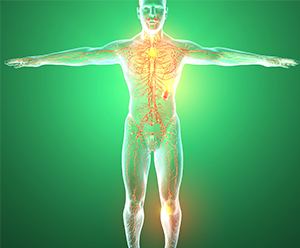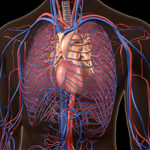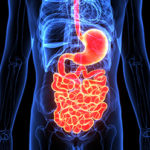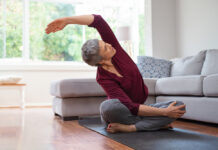 For all our lives we’ve been told about the importance of eating right and exercising. Those goals are something we should ascribe to at any age. For seniors, being active can make all the difference when it comes to the quality of life they’ll be enjoying in retirement. The good news is that it is never too late to start working out. Here are 5 benefits for seniors who start a program today:
For all our lives we’ve been told about the importance of eating right and exercising. Those goals are something we should ascribe to at any age. For seniors, being active can make all the difference when it comes to the quality of life they’ll be enjoying in retirement. The good news is that it is never too late to start working out. Here are 5 benefits for seniors who start a program today:
 Boosted Immune Function
Boosted Immune Function
No one likes to be slowed down by a cold or flu. When you reach a certain age, those ailments are even harder to bounce back from. Working out creates a stronger body that is more readily able to fight off infections. Even when illness does strike, someone who has been regularly working out will recover a lot quicker.
 Better Respiratory and Cardiovascular Function
Better Respiratory and Cardiovascular Function
Doctors prefer natural “fixes” to problems vs prescribing medications. Exercise is one of the best natural ways to lower the risk of heart disease. It can also have a positive impact on your blood pressure numbers. As you strengthen your cardiovascular function, you’ll also be building a stronger respiratory system. Everything is connected.
 Stronger Bones
Stronger Bones
One of the best pieces of advice you can embrace as a senior is, “Don’t fall.” Working out helps minimize the effects of bone loss by creating higher bone density. Older women are most susceptible to bone loss with averages of 2% diminishment each year. Not only will working out strengthen those bones but it can also improve balance.
 Improved Gastrointestinal Function
Improved Gastrointestinal Function
Every work out session fires up the metabolism. That helps keep everything “flowing” as it should. Anyone who suffers from slow digestion and constipation could see improvements after a few weeks of regular exercise.
 Protection Against Chronic Conditions
Protection Against Chronic Conditions
Keeping physically active can lower the risk of developing a serious chronic condition. For those who have already been diagnosed, studies have shown that regular workouts can help patients with dementia and Parkinson’s disease. Again, it can help with balance issues and coordination. That in turn helps promote functional independence.







